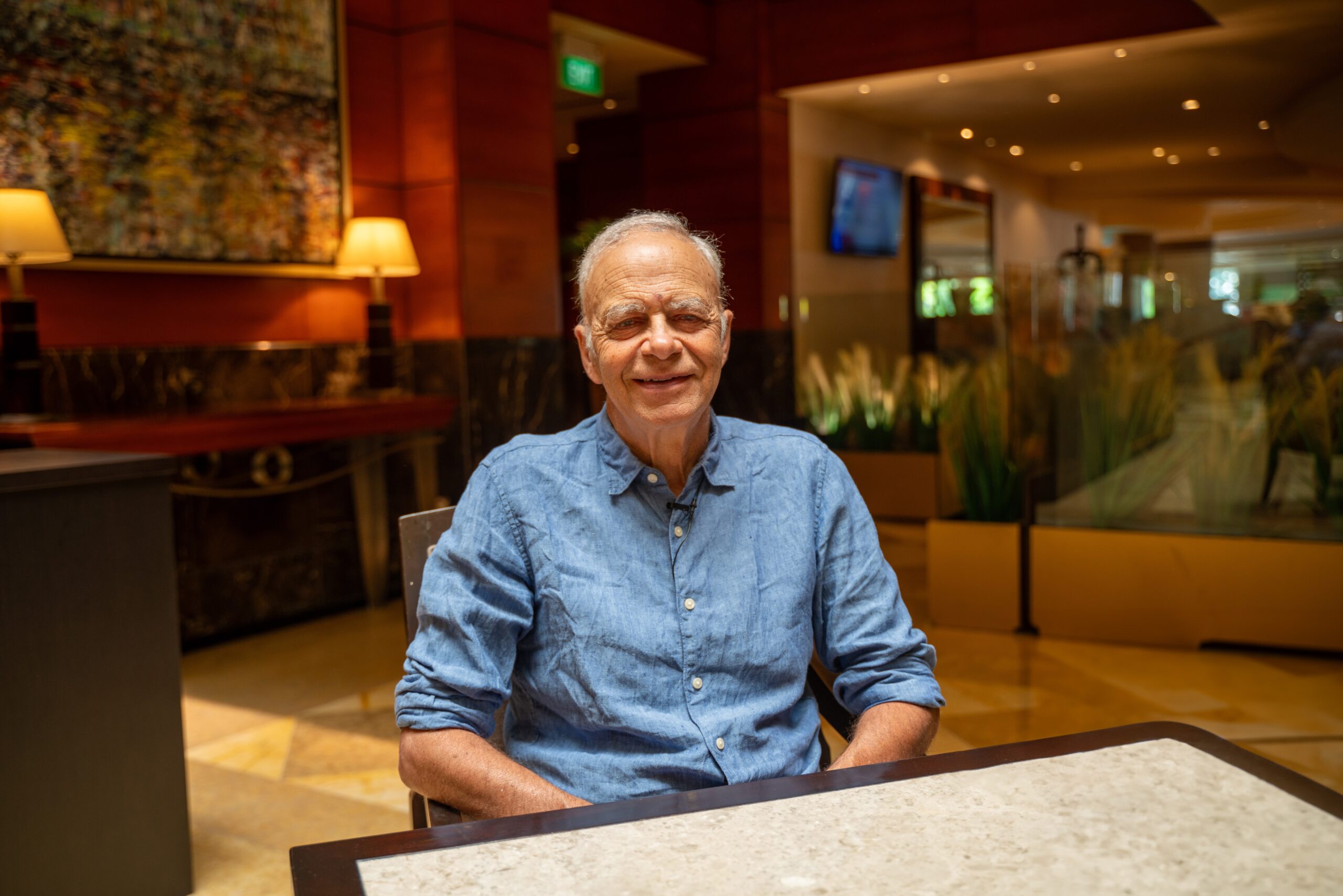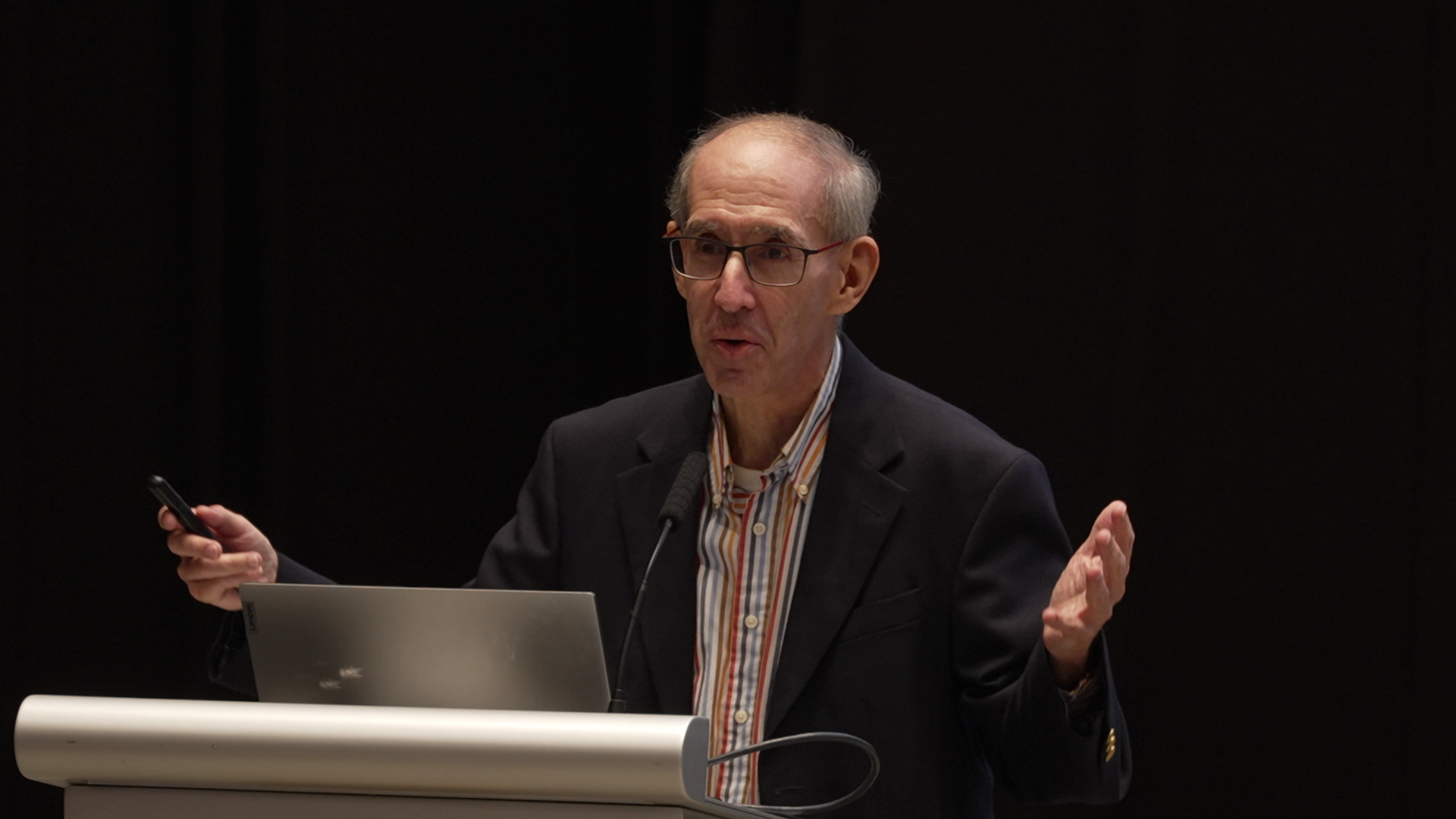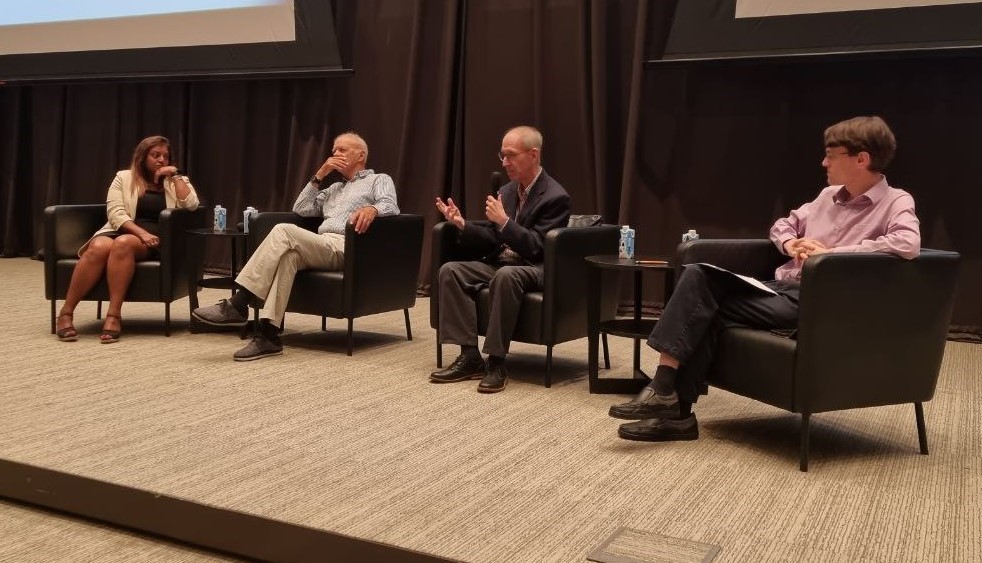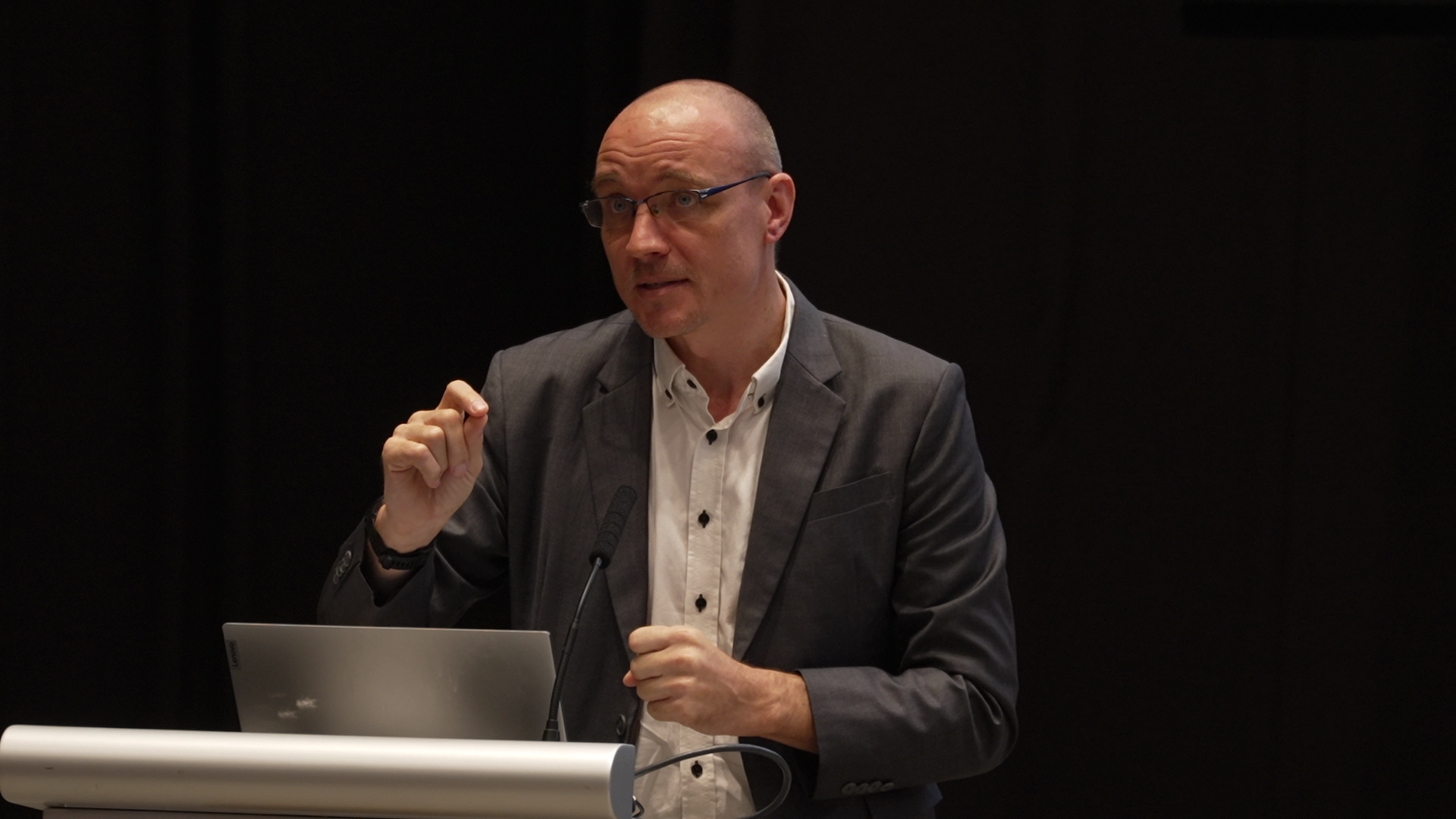Exposing human volunteers to infectious diseases: A workshop on the ethics of human challenge studies
Published: 15 Apr 2024

Renowned ethicist Prof Peter Singer, Ira W. DeCamp Professor of Bioethics in the University Center for Human Values, Princeton University, one of the speakers at the workshop on the ethics of human challenge studies, held on 8 April 2024
Research studies which involve the deliberate exposure of human volunteers to infectious substances—also known as challenge studies—can expedite and streamline the development of therapeutic drugs and vaccines—compared to traditional clinical trials which often span many years. In such challenge studies, researchers monitor how the human body responds to diseases and test treatments in a controlled setting. Besides testing treatments and vaccines, challenge studies have also been used to study the natural course of a disease by allowing control over the level of exposure to diseases—including influenza, malaria, or dengue. More recently, in 2021, the Imperial College London ran the world’s first human challenge study for COVID-19.
Closer to home, what are the ethical questions that we should consider if a human challenge study for COVID-19 takes place in Singapore? Held on 8 April 2024, a workshop organised by the Centre for Biomedical Ethics (CBmE) at the Yong Loo Lin School of Medicine, National University of Singapore (NUS Medicine), and the National Centre for Infectious Diseases (NCID), brought together bioethicists, researchers, clinicians and healthcare professionals, to discuss the ethics of human challenge studies.
Discussing the principle of risk parity, renowned ethicist Professor Peter Singer, Ira W. DeCamp Professor of Bioethics in the University Center for Human Values, Princeton University, said, “If we allow, or even require, health workers and others to be exposed to high risk, we should not refuse to allow research participants to voluntarily take on comparable levels of risk, for comparable or greater benefit”. Prof Singer was one of the speakers at the workshop, who examined the ethical challenges in challenge studies and approaches to overcome them.
In an interview with NUS Medicine, Prof Singer shared his thoughts on what justifies human challenge trials, and how potential concerns could be addressed. Prof Singer is often described as the “world’s most influential living philosopher” by journalists. He gained widespread attention for his book, Animal Liberation (1975), which is widely considered to be one of the foundational texts of the animal rights movement.
If the ethical principles guiding clinical care dictate that doctors must prioritise the best interests of their patients, does conducting research that involves doctors engaging in acts contrary to these interests still align with ethical standards? In the lecture delivered by Professor Jerry Menikoff from the CBmE at NUS Medicine, he examined the balancing test of using an “equation” that looks at benefits and risks to participants and the society. Trained as an attorney and physician, Prof Menikoff has been involved with the ethics and regulation of research with human beings. After overseeing the programme for protecting intramural research participants at the United States’ National Institutes of Health, he subsequently became the director of the Office for Human Research Protections. During his 14 years in that role, he successfully led efforts to revise the U.S. regulations for protecting research participants.

Prof Jerry Menikoff delivering a lecture on ethical and regulatory aspects of challenge trials.

A panel discussion on understanding challenge trials (From left: Shobana Balasingham, Human Infection Study Programme, Wellcome; Prof Peter Singer, University Center for Human Values, Princeton University; Prof Jerry Menikoff, CBmE, NUS Medicine; Asst Prof Owen Schaefer, CBmE, NUS Medicine)
In the second part of the workshop, speakers delved into a closer examination of the Singapore context. Associate Professor Barnaby Young, Senior Consultant, National Centre for Infectious Diseases and Tan Tock Seng Hospital, shared how challenge studies, particularly if it is related to COVID-19, could be conducted in Singapore, along with pertinent ethical considerations.

A/Prof Barnaby Young delivering a lecture on COVID-19 challenge trials
The workshop is co-organised as part of the Science, Health and Policy-relevant Ethics in Singapore (SHAPES) initiative under the CBmE, at NUS Medicine, which supports Singapore’s goals in research on human health and potential through the development of Singapore bioethics capacity, and the NCID.
Catch the workshop recordings in the links below:
Part 1: Challenge trials generally
Part 2: COVID-19 Challenge Trials




